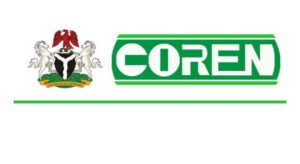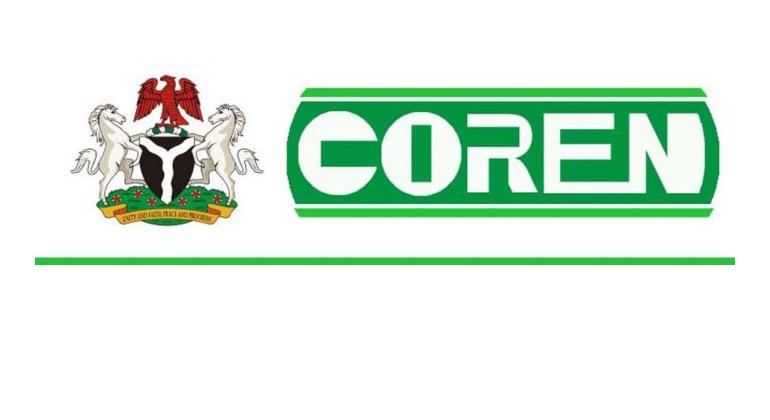The Council for the Regulation of Engineering in Nigeria (COREN) has officially reintroduced a compulsory one-year Engineering Residency Programme for all engineering graduates from Nigerian universities and polytechnics. This initiative, aimed at building practical competence, was announced by COREN President, Engr. Sadiq Abubakar, during a press briefing in Abuja ahead of the 33rd Engineering Assembly scheduled for July 15–17, 2025.
Themed “Advancing Quality Engineering Services and Businesses in Nigeria: Professional Compliance and Remuneration,” the upcoming assembly will gather over ten million professionals across the engineering spectrum to discuss critical issues in the field.
Abubakar explained that the newly revived residency initiative, formerly known as the Supervised Industrial Training Scheme in Engineering (SITSE), has now been rebranded as the Engineering Residency Programme. Under it’s directive, this programme will be mandatory before the graduates proceed to the National Youth Service Corps (NYSC).
According to him, this move aligns with global best practices, particularly under the Washington Accord, to which Nigeria became a provisional signatory in 2023 through COREN’s efforts. As part of the Mutual Recognition Agreement (MRA), Nigerian engineering graduates will be equipped with the hands-on skills necessary for global competitiveness and licensure under international jurisdictions.
“In line with the current administration’s focus on skills acquisition, COREN is reintroducing what we began 40 years ago, now revamped and renamed the Engineering Residency Programme. This one-year mandatory training will precede NYSC, forming a two-year post-graduation development path,” said Abubakar.

COREN reintroduces mandatory one-year Engineering Residency Programme for Nigerian graduates
COREN is also engaging stakeholders to secure a monthly stipend of N75,000 for participants and has inaugurated a dedicated task force to establish a sustainable funding mechanism.
In addition to the residency programme, COREN is implementing a comprehensive remuneration structure for engineering professionals through the revised Engineering Compensation and Professional Scale Structure (ECOPASS). The structure will define standard wages—hourly, daily, and monthly—for engineers, technologists, and technicians across both public and private sectors. This, Abubakar noted, is part of COREN’s strategy to curb quackery and ensure fair compensation within the profession.
READ ALSO: 2025 Admissions: JAMB Sets 150 Cut-Off for Universities, 100 for Polytechnics and Others
“The new ECOPASS reflects the economic realities and addresses disparities in pay, especially between local professionals and expatriates,” he said. “Licensing bodies like COREN have a responsibility to define fair remuneration standards. We are now taking that seriously.”
COREN is also set to enforce annual practising license renewals, now linked to continuous professional development, overseen by the newly constituted Engineering Professional Examination Committee—comprising the NSE, NATE, NiSET, and NAEC.
To ensure quality in engineering education, COREN has strengthened its partnerships with regulatory agencies such as the National Universities Commission (NUC) and the National Board for Technical Education (NBTE) for joint accreditation of programmes in universities and polytechnics. It has also secured JAMB’s collaboration to regulate engineering admission processes in Nigeria.
“Like medicine, law, and pharmacy, COREN is now involved in setting admission quotas and curriculum standards to meet global benchmarks,” Abubakar emphasized.
As part of its decentralisation efforts, COREN has established seven regional offices in Enugu, Port Harcourt, Ibadan, Kano, Abuja, Gombe, and Lagos (as a special hub), to oversee engineering practice across 11 critical sectors including oil and gas, construction, aviation, telecommunications, and manufacturing.
Additionally, COREN is playing a key role in Nigeria’s National Skills Qualification Framework, certifying training centres and artisans to elevate engineering practice and safety standards nationwide.
The 33rd Engineering Assembly will also feature reviews of the council’s activities, stakeholder engagements, technical sessions, and a special “engineering family forum.” The keynote address will be delivered by former Vice President, Prof. Yemi Osinbajo.
Abubakar concluded by reaffirming that COREN’s latest reforms—the Engineering Residency Programme, ECOPASS, and accreditation enhancements—will reposition Nigerian engineering on the global stage.m


